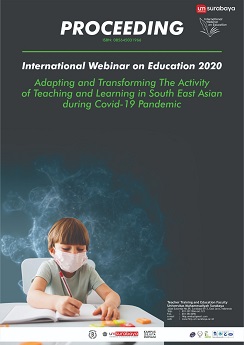The Impact of Formative Assessment on High Achievers and Low Achievers – A Systematic Review
Abstrak
Abstract. Assessments are vital tools for evaluating what a student has learnt and to determine if a learning objective has been achieved. The effectiveness of either formative or summative assessment as an evaluation tool has been debated over decades around the world. This article presents a systematic review of the impact formative assessment on academically high or low achieving students. The related studies were identified through online searches of the educational journal databases: Science Direct, Web of Science and Springer Link. Fourteen published articles were identified as the most relevant to this study and the content and findings were analysed. The benefits and implications of this study on the educational system are further discussed in this article. Based on the Systematic review, tables are provided to summarise the research findings. Both groups; high and low achievers benefitted from implementing formative assessment in the classroom. There are two main domains where both groups specifically benefitted from; the cognitive and the affective. The limitations of the study include the small number of articles that relate to the impact of formative assessment in science-related disciplines. This review also focusses on the effects on formative assessment but there is no emphasis given on how formative assessment can be implemented effectively to have a meaningful impact.Referensi
Sadler, D. R. (1989). Formative assessment and the design of instructional systems. Instructional Science, 18(2), 119-144.
Zhao, X., Van den Heuvel-Panhuizen, M., & Veldhuis, M. (2017). Classroom assessment in the eyes of Chinese primary mathematics teachers: A review of teacher-written papers. Studies in Educational Evaluation, 52, 42-54.
Iqbal, M., & Anjum, A. (2017). Effect of Continuous Assessment Techniques on Students' Performance at Elementary level. Bulletin of Education and Research, 39(1).
Stiggins, R., & Chappuis, J. (2005). Using student-involved classroom assessment to close achievement gaps. Theory into practice, 44(1), 11-18.
Sheard, M. K., & Chambers, B. (2014). A case of technology-enhanced formative assessment and achievement in primary grammar: How is quality assurance of formative
assessment assured? Studies in Educational Evaluation, 43, 14-23.
Tierney, R. D. (2014). Fairness as a multifaceted quality in classroom assessment. Studies in Educational Evaluation, 43, 55-69.
Hopster-den Otter, D., Wools, S., Eggen, T. J., & Veldkamp, B. P. (2017). Formative use of test results: A user‘s perspective. Studies in Educational Evaluation, 52, 12-23.
Jónsson, Ã. R., Smith, K., & Geirsdóttir, G. (2018). Shared language of feedback and assessment. Perception of teachers and students in three Icelandic secondary schools. Studies in Educational Evaluation, 56, 52-58.
Johari, J., Wahab, D. A., Ramli, R., Saibani, N., Sahari, J., & Muhamad, N. (2012). Identifying Student-Focused Intervention Programmes through Discrimination
Index.Procedia-Social and Behavioral Sciences, 60, 135-141.
Han, S., Capraro, R., & Capraro, M. M. (2015). How science, technology, engineering, and mathematics (STEM) project-based learning (PBL) affects high, middle, and low achievers differently: The impact of student factors on achievement. International Journal of Science
and Mathematics Education, 13(5), 1089-1113.
Solomonidou, G., & Michaelides, M. (2017). Students‘ conceptions of assessment purposes in a low stakes secondary-school context: A mixed methodology approach. Studies in Educational Evaluation, 52, 35-41.
Smit, R., & Birri, T. (2014). Assuring the quality of standards-oriented classroom assessment with rubrics for complex competencies. Studies in Educational Evaluation, 43, 5-13
Mohamadi, Z. (2018). Comparative effect of online summative and formative assessment on EFL student writing ability. Studies in Educational Evaluation, 59, 29-40.
Meusen-Beekman, K. D., Joosten-ten Brinke, D., & Boshuizen, H. P. (2016). Effects offormative assessments to develop self-regulation among sixth-grade students: Results from a randomized controlled intervention. Studies in Educational Evaluation, 51, 126-136.
Chua, H. L., Lee, S. H., & Fulmer, G. W. (2017). Action research on the effect of descriptive and evaluative feedback order on student learning in a specialized mathematics and science secondary school. Asia-Pacific Science Education, 3(1), 4.
Katsumata, D. (2018). What Do You Mean I Got a D+? Effects of Feedback Type and Quality on Academic Performance, Metacognition, and Motivation in High School Students.
Doppelt, Y. (2003). Implementation and assessment of project-based learning in a flexible environment. International Journal of Technology and Design Education, 13(3), 255-272.
Hansen, G., & Ringdal, R. (2018). Formative assessment as a future step in maintaining the mastery-approach and performance-avoidance goal stability. Studies in Educational Evaluation, 56, 59-70






